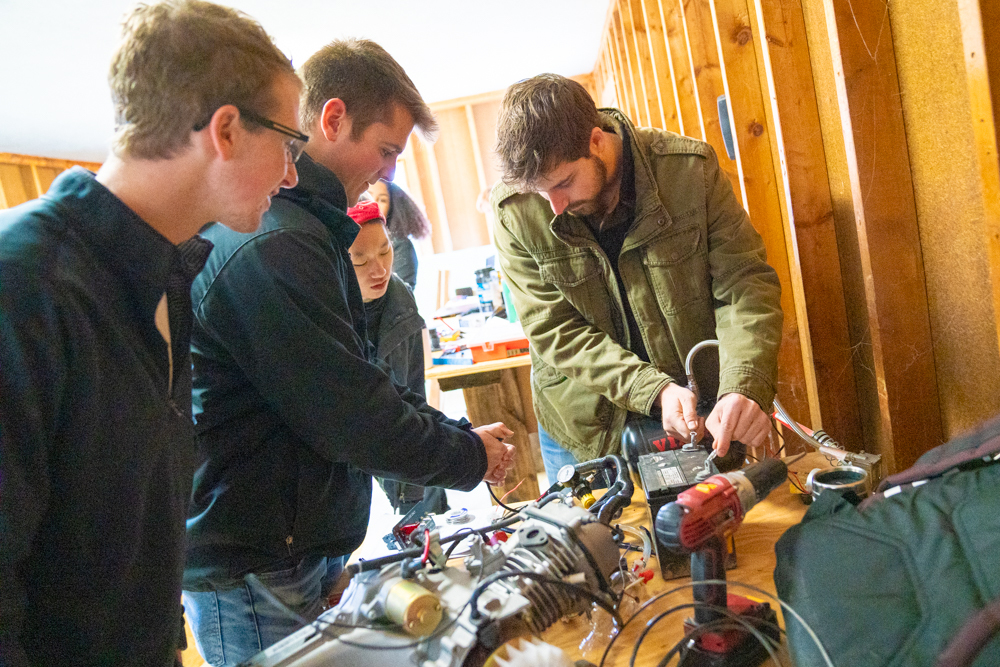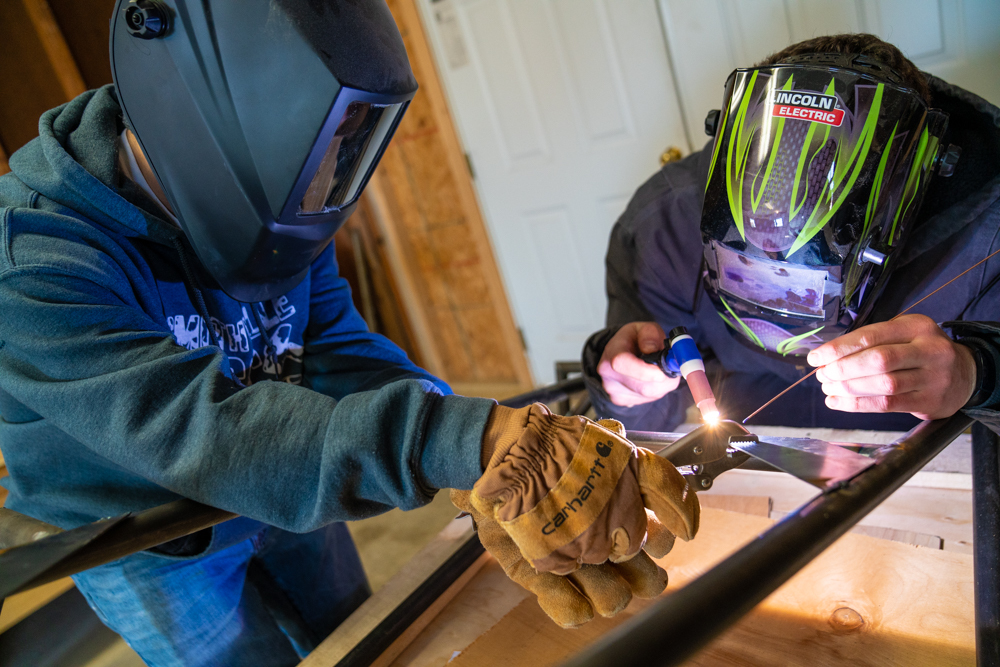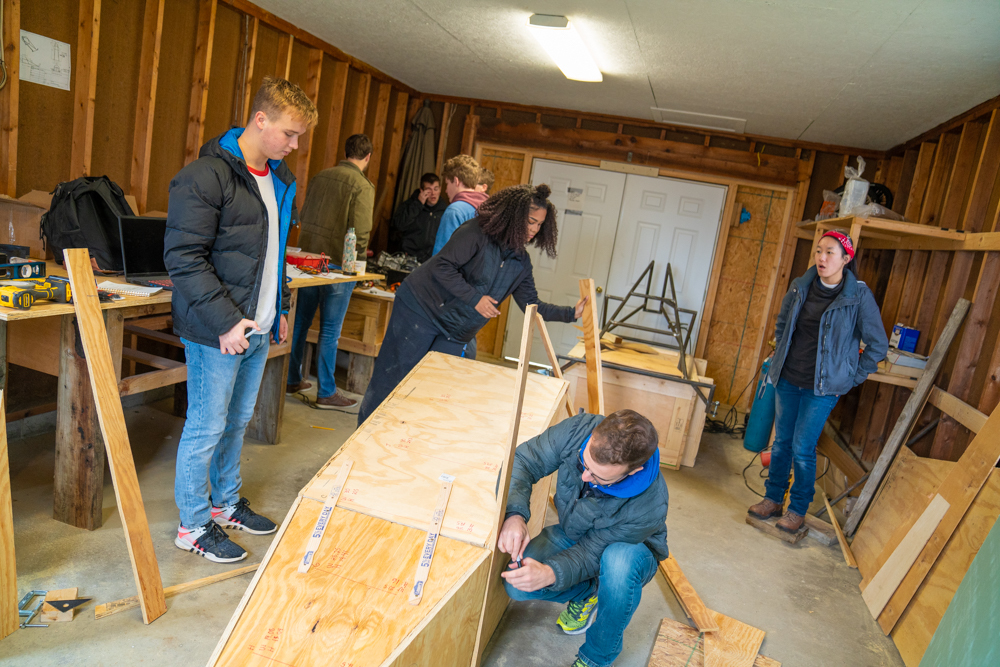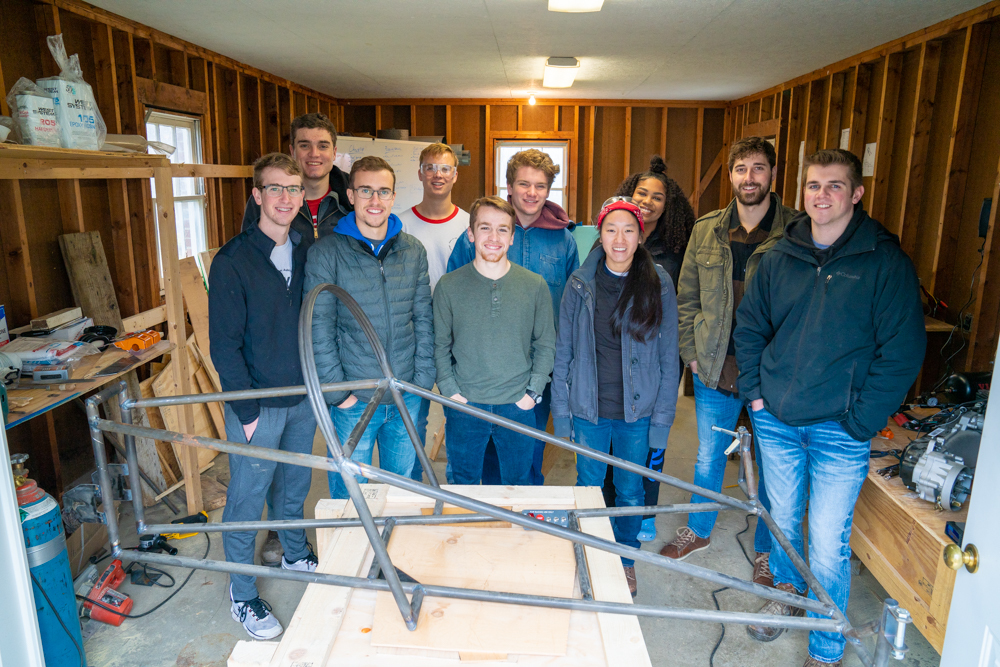Tucked away in a garage on Eastern Mennonite University’s campus sits a metal frame made of chrome moly tubing, an extruded steel alloy. Various tools, plywood, and parts of a gas-powered motor lie around. The frame is narrow, and low to the ground, like the chassis of a drag race car. And it will be a race car – but if it’s to win the Shell Eco-marathon, it will have to be by fuel efficiency, not speed.
Mechanical engineering major Ben Bontrager-Singer is leading a team of nine other students to build the car for the Eco-marathon at the Sonoma Raceway in California. They had planned to compete this April, but the eco-marathon this year was cancelled in the wake of the COVID-19 outbreak. Bontrager-Singer said they will continue to work on the vehicle in preparation for the 2021 marathon, which they had already planned on competing in after this year’s race.

“We will have to work a little harder to do research and find ways that we can improve without the experience of the competition,” he said. “We made a tremendous amount of progress this year and we will just continue that progress … we will have more time to do some testing and improve the car now that it is much further along, considering that we only had a few pieces of metal and some tools at the beginning of January.”
To compete, the car will have to pass rigorous safety and quality inspections and drive at least 15 miles per hour. To win, it has to complete the course using the least amount of gasoline.

“We want every ounce of fuel that goes into the combustion chamber to be used,” says Bontrager-Singer.
The students are converting a small, 50cc moped motor to electronic fuel injection for the car. Bontrager-Singer expects they’ll be able to reach a top speed of about 30 miles per hour, but will drive slower to maximize their fuel efficiency beyond 100 miles per gallon.
What’s their strategy to win against dozens of teams from across the country, many of whom spend thousands of dollars on the highest-tech, lightest-weight materials?
“We could beat them if our car runs and theirs doesn’t,” Bontrager-Singer says with a chuckle. Many of the vehicles fail inspections once they arrive, or malfunction in transit to the raceway and don’t start.
So far, the team has raised more than $9,135 of their $9,500 goal through EMU’s crowdfunding platform to purchase materials and tools. The team has put long hours into the project, working between classes, evenings, and sometimes in all-day sessions on Saturdays. Earlier this semester, they spent 11 hours at Excel Steel’s nearby metal shop welding the chassis.
Buddy Wilkins, the group’s faculty advisor, said the students are learning welding, mechanical design, aerodynamics, fluid mechanics, and design through the project.
“The hope is this will be ongoing” from year to year, Wilkins said.

“Really generous people have been very supportive of this project,” Bontrager-Singer said. EMU’s Student Government Association helped get the project off the ground, and local businesses and individual donors have lent their support, too. The group also took a trip to James Madison University (JMU), which has fielded an Eco-marathon team for a few years now.
“They’ve been very open about answering questions and talking about what they’re doing,” said Bontrager-Singer. The EMU team had planned to ship their car to California on a truck along with JMU’s entry.
Prior to this project, the extent of Bontrager-Singer’s automotive experience was changing out an alternator and other minor car repairs with his father. His teammates have a variety of expertise, he said, but all have a general handiness about them.
“I am grateful for the work and learning that my teammates have put in,” he said.
The members of the EMU Eco-marathon team are:
- Ethan Beiler,
- Ben Bontrager-Singer,
- Caleb Hostetler,
- Jaden Jones,
- Collin Longenecker,
- Taylor Longenecker,
- Douglas Nester,
- Tessa Waidelich,
- Luke Wheeler,
- Aaron Zimmerman, and
- faculty advisor Buddy Wilkins.
The businesses sponsoring the project are:
- Dynamic Aviation
- InterChange Group
- TCW Computer Systems Inc
- The Stanger Group
- Belier-Campbell Realtors
- Jacob Kline Automotive
- Mar-Vo Mineral Company
- East Coast Bike Company
- Excel Steel Works

Great achievement! Best wishes to your team.